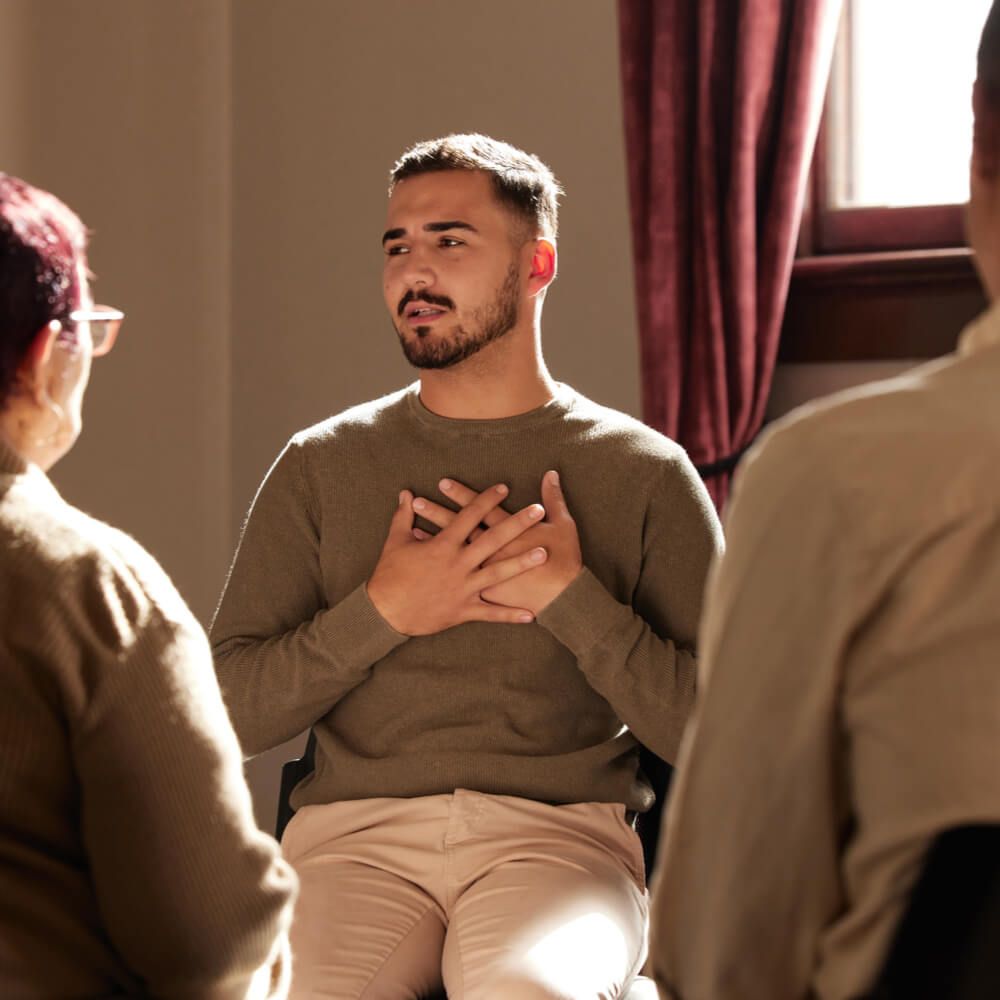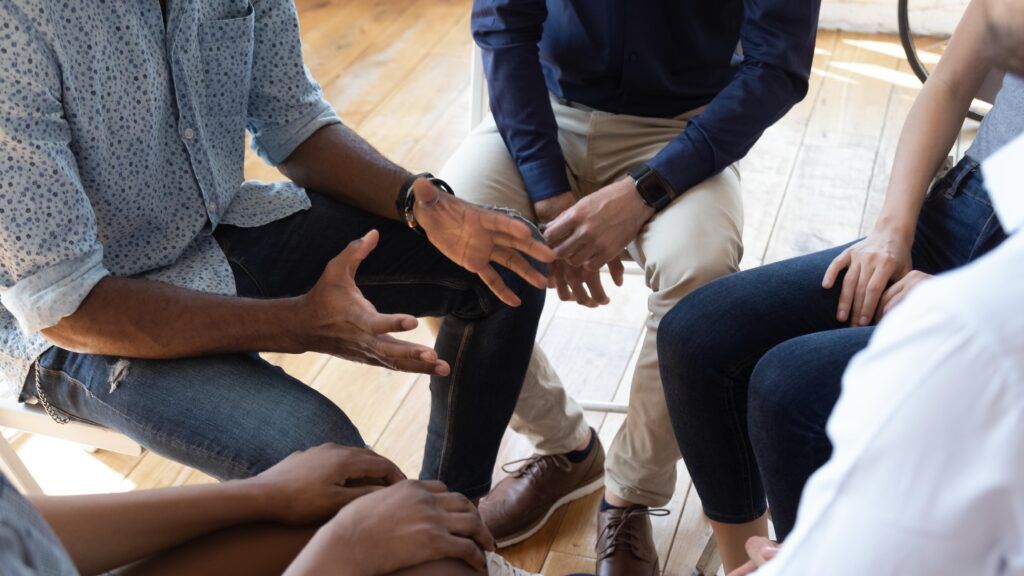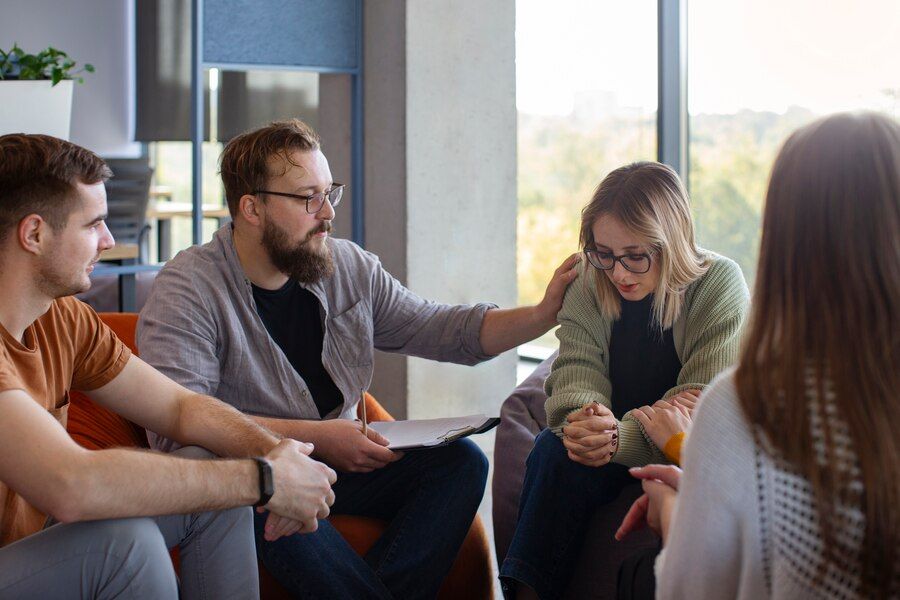In the journey towards mental wellness, the path can often feel lonely and overwhelming. However, amidst the challenges, there exists a beacon of hope and resilience: group therapy. In this blog, we delve into the significance of group therapy within the context of Intensive Outpatient Programs (IOP). As individuals navigate the complexities of their mental health conditions, the communal setting of group therapy offers a sanctuary of understanding and solidarity. Through shared experiences, participants not only find solace in knowing they are not alone, but they also gain invaluable insights and coping mechanisms from fellow members. From substance abuse recovery to managing mood disorders, group therapy within IOPs provides a supportive environment where individuals can openly express themselves without fear of judgment. Join us as we explore the transformative power of group therapy and how it serves as a cornerstone in the journey towards healing and recovery.
Holistic Healing: The Comprehensive Approach of Group Therapy in IOP

In the realm of mental health and addiction recovery, a holistic approach is paramount for fostering lasting healing and wellness. Within Intensive Outpatient Programs (IOP), group therapy stands as a cornerstone of this comprehensive approach. By addressing emotional, psychological, and social dimensions of individuals’ experiences, group therapy within IOP offers a multifaceted pathway towards recovery. Let’s delve into the ways in which this comprehensive approach facilitates holistic healing.
Emotional Wellness
Group therapy provides a safe space for individuals to explore and express their emotions freely. Through shared experiences and empathetic listening, participants learn to identify and regulate their emotions, fostering emotional resilience essential for sustained recovery.
Psychological Insight and Growth
Within the supportive environment of group therapy, individuals gain valuable insights into their thought patterns, behaviors, and underlying beliefs. Through feedback, reflection, and group exercises, participants uncover new perspectives and develop healthier coping strategies to navigate life’s challenges.
Social Support and Connection
Humans are inherently social beings, and the power of connection cannot be overstated in the journey towards recovery. In group therapy sessions, individuals find solidarity, empathy, and understanding among their peers, cultivating a sense of belonging and community that bolsters their resilience.
Addressing Underlying Trauma and Root Causes
Holistic healing acknowledges the interconnectedness of past experiences and present struggles. Within group therapy, participants confront underlying trauma and address root causes of their addictive behaviors or mental health issues, laying the foundation for deep-seated transformation and healing.
Integrating Mindfulness and Self-Care
Mindfulness practices and self-care techniques are seamlessly woven into group therapy sessions within IOP, promoting present moment awareness and self-compassion. Participants learn to cultivate mindfulness as a tool for managing stress, reducing cravings, and fostering inner peace.
Empowering Voices: Encouraging Participation in IOP Group Therapy

In the realm of Intensive Outpatient Programs (IOP), group therapy serves as a cornerstone of healing, offering individuals a platform to share their experiences, insights, and challenges in a supportive environment. However, encouraging active participation within these sessions is crucial for maximizing therapeutic benefits. Let’s explore key strategies to empower voices and foster engagement in group therapy within IOP settings.
- Creating a Safe Space: Establishing a safe and non-judgmental environment is paramount to encouraging participation. Participants must feel comfortable sharing their thoughts and emotions without fear of criticism or stigma.
- Facilitating Open Dialogue: Encourage open dialogue by fostering a culture of respect, empathy, and active listening within the group. Emphasize the value of each individual’s perspective and ensure that everyone has an opportunity to contribute.
- Setting Clear Expectations: Clearly outline expectations for participation from the outset, emphasizing the importance of attendance, engagement, and confidentiality. Providing structure and guidelines can help individuals feel more comfortable and empowered to participate.
- Offering Supportive Feedback: Provide constructive feedback and encouragement to individuals who may be hesitant to speak up. Recognize and affirm their contributions, no matter how small, to boost their confidence and sense of belonging within the group.
Building Bonds: The Power of Connection in Group Therapy within IOP
Within the framework of Intensive Outpatient Programs (IOP), group therapy serves as a crucible where individuals come together to embark on a journey of healing and transformation. At the heart of this process lies the power of connection—the forging of bonds that transcend shared experiences, fostering empathy, understanding, and mutual support. In this exploration, we delve into the profound impact of these connections within group therapy sessions in IOP settings.
The Foundation of Connection
Connection forms the bedrock of group therapy within IOP, creating a supportive environment where individuals feel seen, heard, and valued. Through genuine interactions and shared vulnerability, participants cultivate a sense of belonging that nurtures their healing journey.
Empathy and Understanding
In the crucible of group therapy, empathy flourishes as individuals witness and validate each other’s experiences. By sharing their stories and listening with compassion, participants develop a deeper understanding of themselves and others, fostering empathy that transcends boundaries.
Breaking Down Walls
Group therapy within IOP provides a safe space for individuals to tear down the walls of isolation and shame. As they share their struggles and triumphs openly, participants realize that they are not alone in their journey, fostering a sense of camaraderie and solidarity.
Fostering Emotional Resilience
Through the power of connection, group therapy equips individuals with the emotional resilience needed to navigate life’s challenges. By offering support and encouragement, participants learn to lean on each other during difficult times, strengthening their ability to cope and thrive.
Collective Growth and Healing
The synergy of group therapy catalyzes collective growth and healing as individuals draw strength from each other’s resilience and insights. Through peer support and feedback, participants challenge themselves to confront limiting beliefs and behaviors, fostering transformation on both individual and group levels.
Conclusion
Group therapy within Intensive Outpatient Programs (IOP) offers a vital avenue for individuals seeking support and recovery. Through shared experiences, empathetic understanding, and professional guidance, participants in group therapy sessions at Core Recovery in Phoenix, Arizona, discover a profound sense of connection and solidarity. These therapeutic communities foster growth, resilience, and lasting change, empowering individuals to navigate the challenges of addiction and mental health disorders with strength and determination.
If you or a loved one are ready to embark on a journey towards healing and transformation, don’t hesitate to reach out to Core Recovery. Contact us at 602-926-7729 to learn more about our IOP services and how group therapy can be a cornerstone in your path to recovery.







 In CA By O360®
In CA By O360®